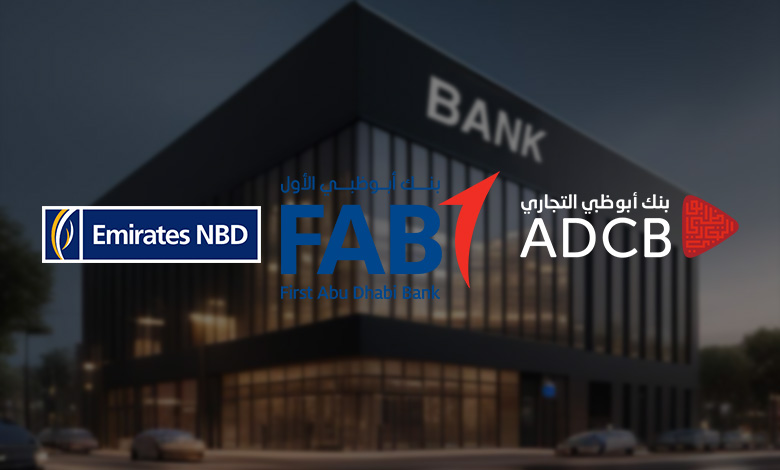Will Alpha Banks in the UAE Embrace the Crypto Revolution?

The United Arab Emirates has unmistakably solidified its position as a global hub for innovation, showcasing a robust economy and an unwavering commitment to technological progress and actively engaged in the dynamic landscape of crypto. However, despite the UAE’s progressive stance, major banks in the region, including Emirates NBD (ENBD) and First Abu Dhabi Bank (FAB), approach the crypto revolution with caution. In 2023, both banks reported significant profits – AED 21.5 billion for ENBD and AED 17.2 billion for FAB. The question lingering is whether the crypto space offers more than potential risks for these alpha banks.
While these banks remain highly profitable, ensuring consistent returns and investor satisfaction, the crypto landscape poses distinctive challenges. The reluctance to fully embrace digital assets is evident, with major Virtual Asset Service Providers (VASPs) struggling to secure partnerships with top-tier banks, including ENBD, FAB, and even smaller banks like ADCB, which reported around AED 8.2 billion in profit in 2023.
The primary question remains: What could motivate these banks to explore the crypto space when their traditional financial models thrive, and the perceived risks associated with crypto seem formidable?
Regulatory Uncertainty and Risk Assessment
A significant obstacle for UAE banks contemplating entry into the crypto realm is the regulatory landscape. Despite notable progress by the Central Bank of the UAE in digital assets regulation, uncertainties persist. The central bank’s cautious approach, driven by efforts to move the country from the FATF grey list to the green list, has left it skeptical about on-ramp and off-ramp activities. While smaller banks may embrace the risk due to their relatively smaller market share, alpha banks must carefully weigh the potential benefits of crypto against the risks, especially when profits are robust, and investor confidence is high. The question arises: Why enter an arena that could bring additional regulatory burdens without an immediate financial incentive?
Currently, the recently established fully digital Zand Bank is taking the lead, collaborating with various VASPs in the UAE. However, this centralization of risk poses potential exposure in case of unforeseen issues. Fuze Finance, on the other hand, has adopted a different approach by collaborating with WIO Bank, another digital bank associated with FAB.
The incentive for alpha banks should transcend profitability, engaging in initiatives that contribute to the greater good of the country, catalyzing the advancement of the digital economy. By doing so, these banks position themselves as catalysts for innovation, not only benefiting their shareholders but also assuming a leadership role in shaping the digital landscape of the UAE. It’s about instilling a sense of purpose, contributing to national progress, and resonating with a demographic that holds the potential to drive future innovation. By actively participating in the digital revolution, alpha banks not only future-proof their institutions but also position themselves as drivers of positive societal and economic change.
Tokenization of Real-World Assets:
One avenue that could entice alpha banks to explore the crypto space is the tokenization of real-world assets. By converting physical or financial assets into digital tokens on a blockchain, banks could enhance liquidity, accessibility, and potentially create new revenue streams. Embracing tokenization would involve alpha banks in broader aspects of the economy, such as the crucial real estate sector in Dubai, or the oil and gas sectors vital for Abu Dhabi.
Crypto Integration in Sustainable Finance:
In the evolving landscape of environmental, social, and governance (ESG) initiatives, the integration of digital tokens for ESG and redemptions is becoming a pivotal consideration for banks. This transformation gained momentum during COP28 in December 2023, marked by a significant announcement from DFSA Chief Executive, Ian Johnston. He unveiled a groundbreaking decision to waive all regulatory fees throughout 2024 for issuers seeking to list sustainability-related debt securities in the Dubai International Financial Centre (DIFC).
What makes this development even more noteworthy is its recent manifestation on the 5th of February 2024. Emirates NBD Bank PJSC became the inaugural financial institution to benefit from the fee waiver introduced by the Dubai Financial Services Authority (DFSA). This strategic move underscores the growing synergy between sustainable finance and crypto-related endeavors, revealing that ESG climate financing has become an appealing avenue for banks. The waived fees occurred independently of crypto involvement, yet it lays the groundwork for a future where digital assets and sustainable finance may intersect, offering a glimpse into the potential symbiosis of these two realms in the financial landscape.
Custody of Digital Assets:
As the crypto space matures, traditional banks, under client pressure, may explore offering custody services for digital assets. By acting as custodians, banks can provide secure storage solutions, addressing the concerns of institutional and retail investors hesitant to manage their crypto assets independently.
Global banks are intensifying their focus on digital asset custody amid a wider digital transformation. This shift positions digital asset custody as a crucial gateway to various financial opportunities like DeFi and tokenization.
A bank in the UAE has obtained a No Objection Certificate (NOC) from the UAE central bank to operate as a custodian. However, despite this clearance, the bank is yet to receive the necessary license from the regulators. Moreover, major banks are strategically eyeing more hospitable jurisdictions for their foray into the digital asset landscape. Standard Chartered is among those gearing up to launch a groundbreaking crypto custody service, setting its sights on Dubai within the UAE by the first quarter of 2024.
Stablecoin Regulations:
While the UAE has taken steps in the CBDC (Central Bank Digital Currency) realm and successfully conducted a major transaction, primarily for cross-border and internal transactions as e-dirhams, stablecoin regulation is anticipated soon. The central bank is keen to accept AED pegged stablecoins, with a preference to involve commercial banks more than non-bank issuers, adopting the PayPal stablecoin standard where issuers will always have on-chain visibility to monitor all activities and the ability to freeze any transaction when needed. The Stablecoin regulations are expected to be out during this quarter, as the central bank has already received comments from all stakeholders on its consultation document.
Mo Ali Yusuf, CEO of Fuze Finance, emphasizes the transformative potential of stablecoins, stating, “Stablecoins will propel the financial system forward. While they are a digital representation of currency, a stablecoin is issued as a token which can be accessed anywhere across a globally accessible, interoperable network. A dirham-pegged stablecoin can support the UAE’s ambitions to be a leader in digital assets, and underpin the financial infrastructure of tomorrow.” This insight underscores the strategic importance of stablecoins in aligning with the UAE’s aspirations to lead in the realm of digital assets, offering a robust foundation for the financial architecture of the future.
Forging a Purpose-Driven Future:
As UAE’s alpha banks stand at the crossroads of tradition and innovation, the decision to embrace the crypto revolution transcends mere financial gains. While immediate profitability might not be the sole impetus, the potential benefits of active participation in crypto-related endeavors present a compelling case. By venturing into the digital realm, alpha banks can position themselves as architects of positive change, contributing to the greater good of the country and propelling the advancement of the digital economy. The call to engage in “passive activities” goes beyond securing profits; it involves assuming a leadership role in shaping the digital landscape of the UAE.





